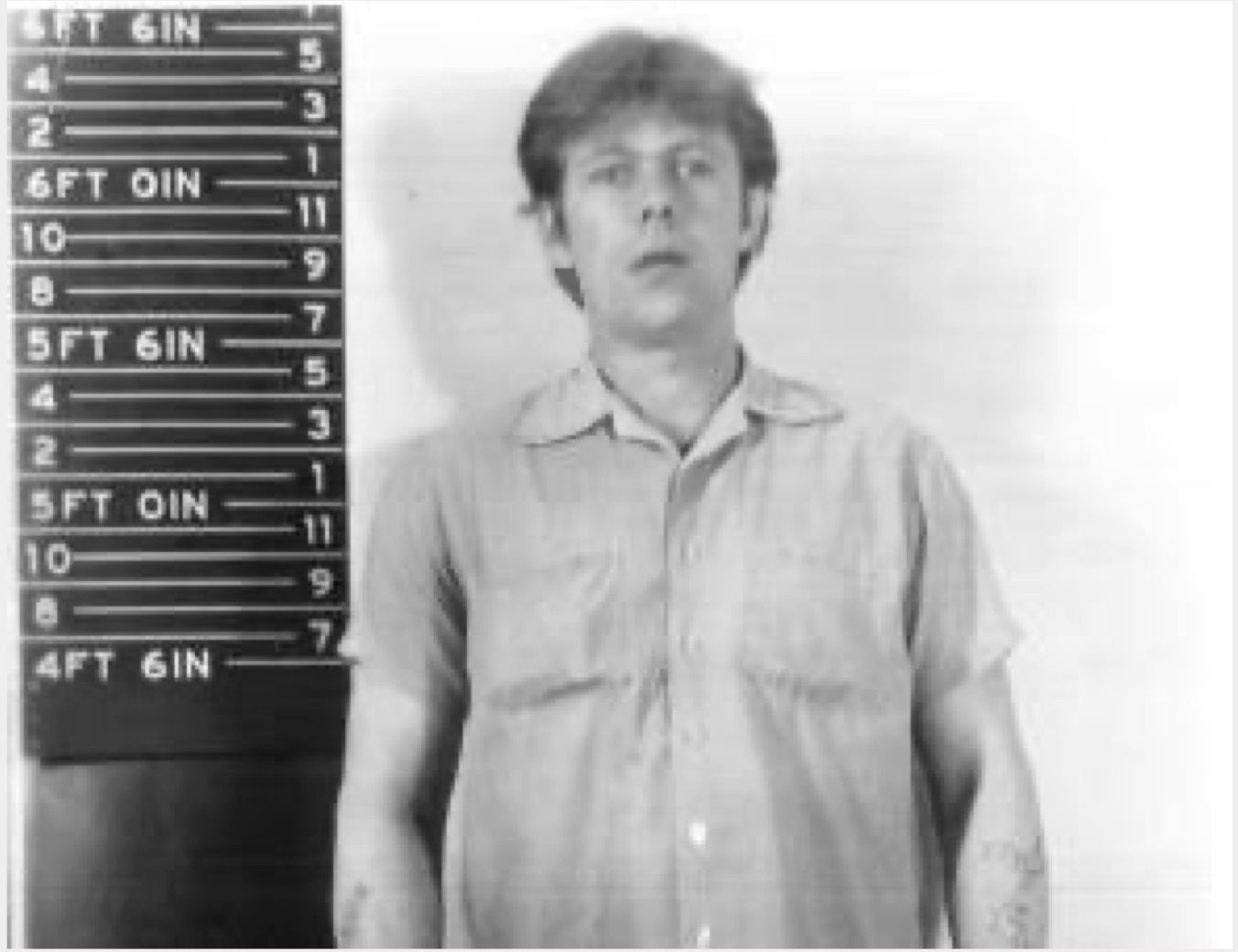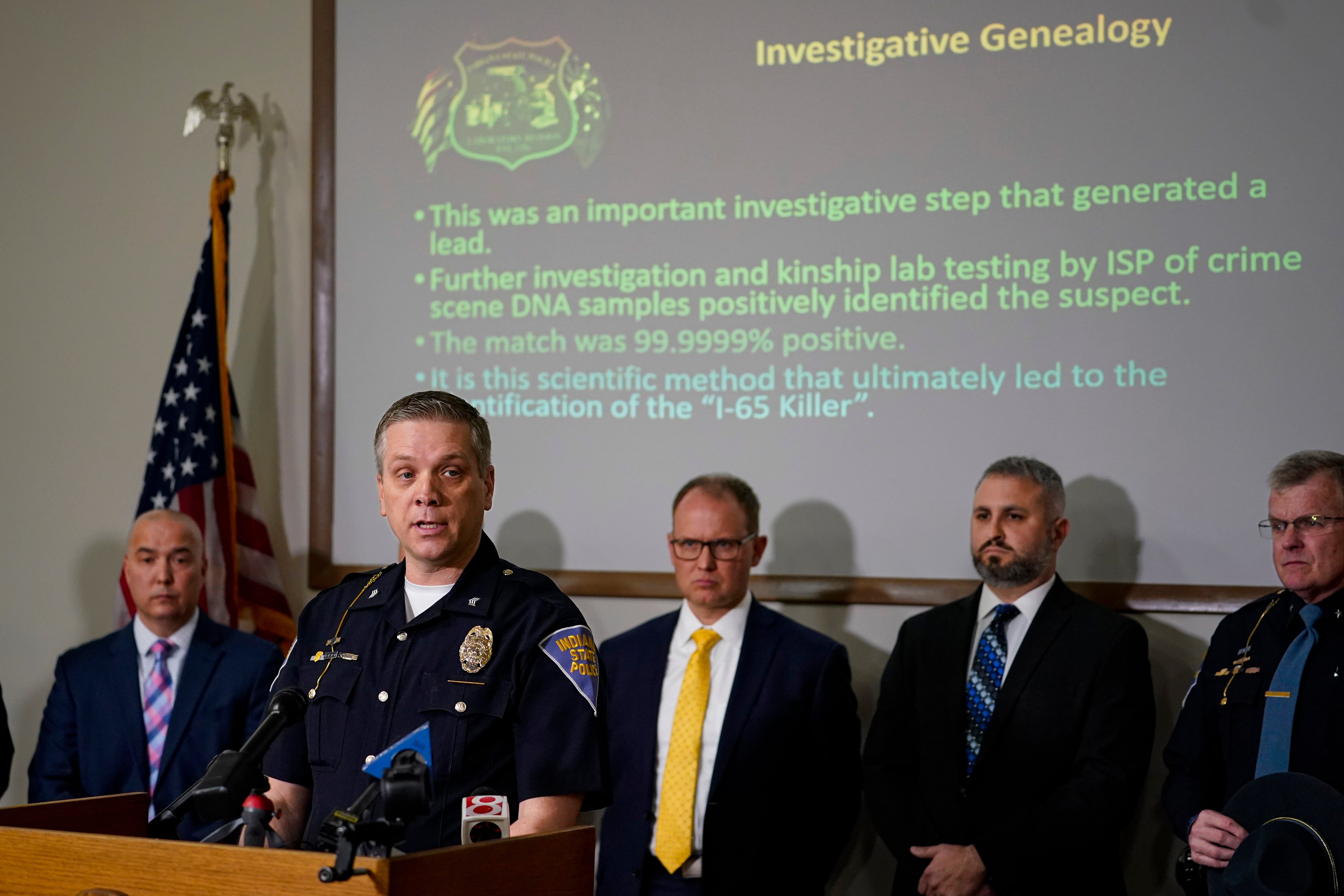
There is a real possibility that alleged serial killer Harry Edward Greenwell – who died in 2013 but has been linked by DNA to at least three rapes and murders in the 1980s – might have claimed more victims, his widow and law enforcement officials said this week.
Greenwell was a Kentucky native who spent time in prison for robbery and then worked on railroad tracks across the Midwest. He died at the age of 68 after a battle with cancer in Iowa, where he shared a three-bedroom farmhouse with his third wife, Julie Jenkins, who had three biological children of her own.
The railroad worker was named on Tuesday at a multi-agency press conference as the suspect in the infamous “I-65 Killer” or “Days Inn Killer” case, involving rapes and murders dating back to the late 1980s.
Ms Jenkins on Wednesday told The Independent that the rural Iowa farmhouse she shared with her husband of nearly 20 years had also looked out onto a highway – though she’d never had an inkling that he could have such a violent past.
She says she feels “pretty dazed” after the naming of her husband at the press conference, which included officials from the FBI and Indiana State Police. She told The Independent that the FBI had contacted her, to her disbelief, several months ago, but she had no idea that such a bombshell identification would happen this week.
“I keep thinking about our life together, and he was ... kind, he was caring,” she said of Greenwell, adding that her late husband “did have a temper [but] that’s not unusual. I don’t think you kill people because you’re mad at them – not ... strangers.
“I don’t know what to think about much of it, other than that I feel horrible for the families that dealt with that for so many years – and I know there’s nothing I can do.
“I’m sorry. I had no idea.”
When asked about authorities’ suspicion her husband could have been responsible for the deaths of more victims, Ms Jenkins said: “It’s certainly a possibility. When you know what you do about serial killers, they generally don’t just stop – so I hope, no, I pray, that there aren’t going to be more victims that he’s linked to. But I fear there’s a real possibility.”
She added: “I’m sorry for those people, as well – it makes me not trust my judgment.”

Officials this week also said there was a “distinct possibility” Greenwell had killed more women – and they were looking into cases across several states.
The first known victim was motel employee Vicki Heath, a 41-year-old mother of two who had recently gotten engaged before she was found dead beside the trash cans behind the Super 8 Motel in Elizabethtown, Kentucky. She had been assaulted and shot twice in the head with a 38-calibre pistol.
The killer’s second and third victims were both slain on the same day: 3 March 1989.
Mary “Peggy” Gill, 24, a night auditor at a Days Inn motel in Merrillville, Indiana, was found dead in the building’s parking lot by a passing motorist. Jeanne Gilbert, 34, a mother of two who also worked as a part-time auditor at the Remington Days Inn, was also fatally shot with the same .22-calibre gun. The attacker had robbed both premises, making off with $426 in total.
A fourth woman working the night shift at a Days Inn motel in Columbus, Indiana, was sexually assaulted and stabbed in 1990 but managed to escape the scene. That woman, named only as Jane Doe, gave police a composite sketch, describing a man with greasy grey hair, a lazy green eye and a beard.
The more modern identification technique “involves uploading a crime scene DNA profile to one or more genetic genealogy databases in an attempt to identify a criminal offender’s genetic relatives and locate the offender within their family tree,” Indiana State Police said in a Tuesday release. “Utilizing this process, a match was made to Greenwell with a close family member. Through this match it was determined that the probability of Greenwell being the person responsible for the attacks was more than 99.99 per cent.”

Indiana State Police Superintendent Doug Carter said at the press conference tat there were “detectives in this room that have been involved in this [in] some form or another for literally generations. They’re owed a debt of gratitude we can never possibly repay.”
Their efforts were appreciated by the families of the victims, with a number of relatives attending Tuesday’s conference.
“I’d like to believe that whatever each of us defines as justice, or what each of us might define as closure, that we’re all now able to share the healing process knowing the long known attacker has now been brought out of the dark, into the light,” Kimberly Gilbert Wright, the daughter of victim Jeanne Gilbert, said.
Greenwell’s widow said she’d been called home from work by her son in Minnesota and he showed her the announcement – to her shock and horror. But she was moved by the statements of Ms Wright and dignity of the investigators.
“She was very, very kind and said: ‘You know, we can’t blame his family,” Ms Jenkins told The Independent, adding that she hoped all the victims’ relatives would “feel that way – because ... if I had known anything I certainly would not have withheld that information.”
“These cases did not go unsolved all these years because of a lack of investigative inactivity – investigators continuously tracked leads across the country and did everything they could to identify the person responsible for these crimes,” FBI Indianapolis Special Agent in Charge Herbert J Stapleton said Tuesday.
“Now, through technological advances and strong, collaborative partnerships we were able to identify this person and, hopefully, start to bring closure and healing to the families of Vicki, Peggy, and Jeanne; as well as the surviving victim.”







